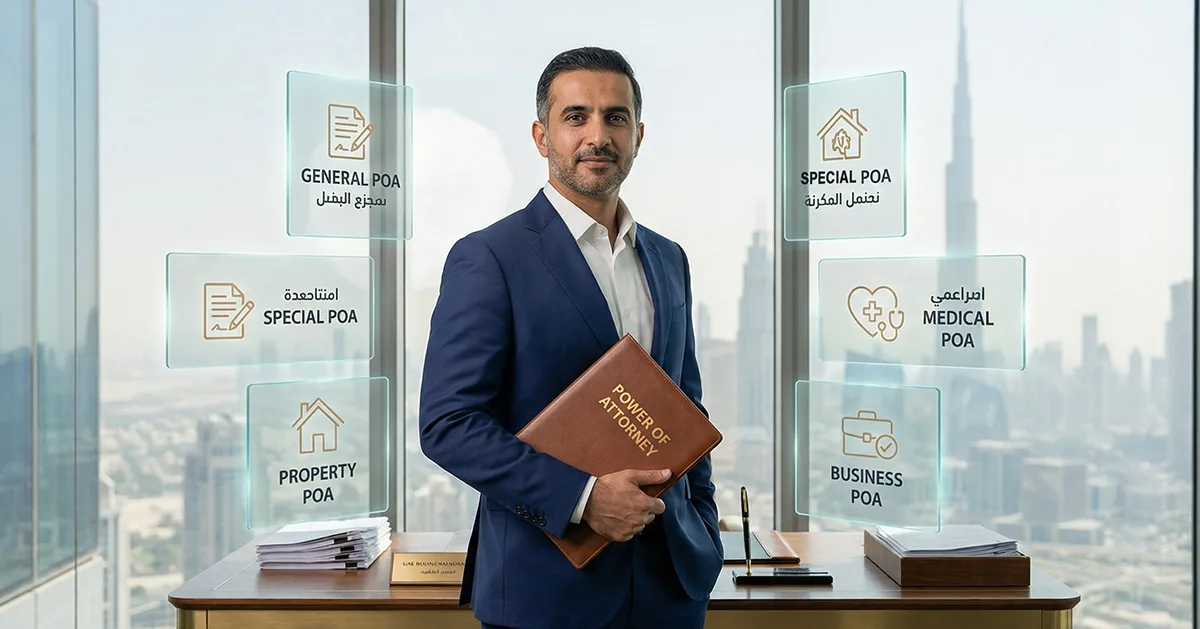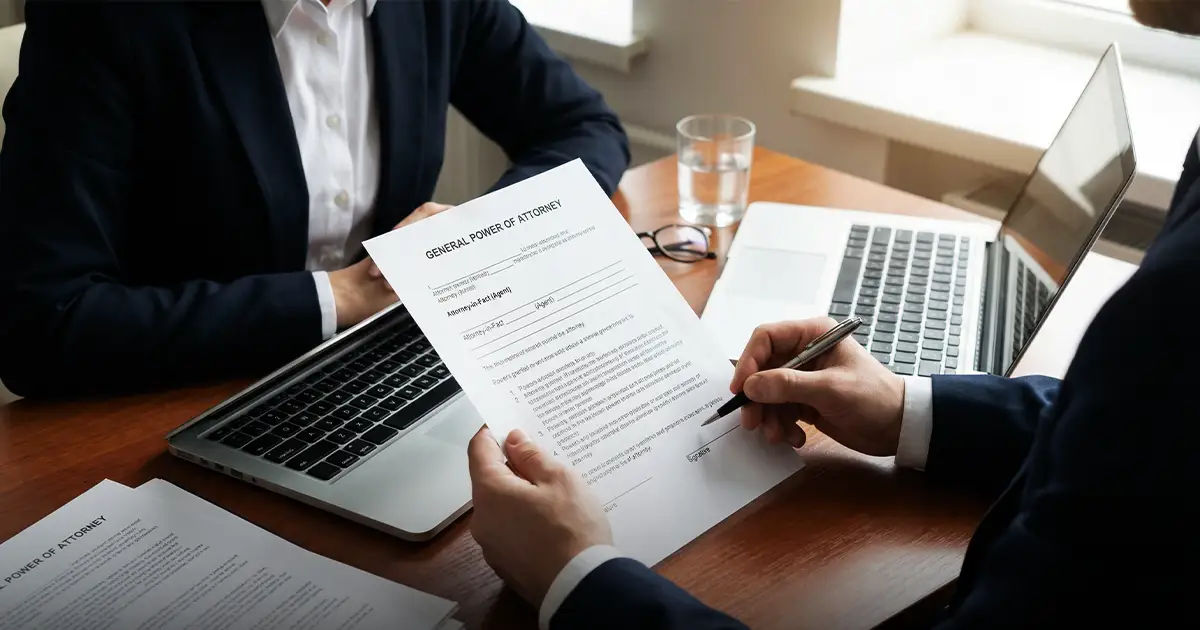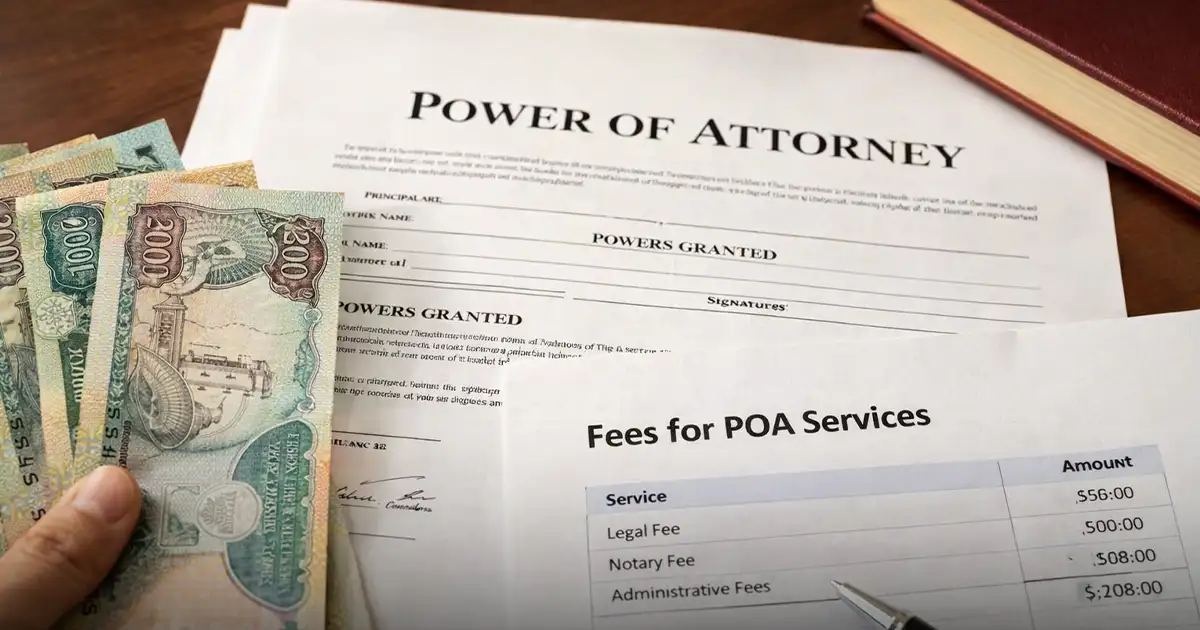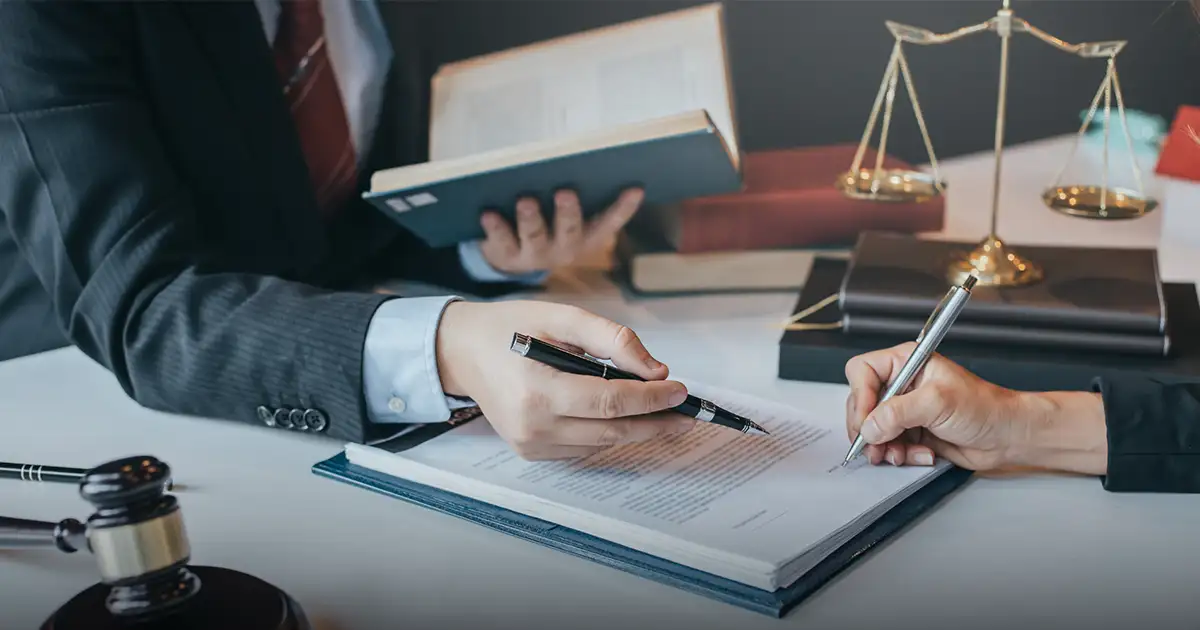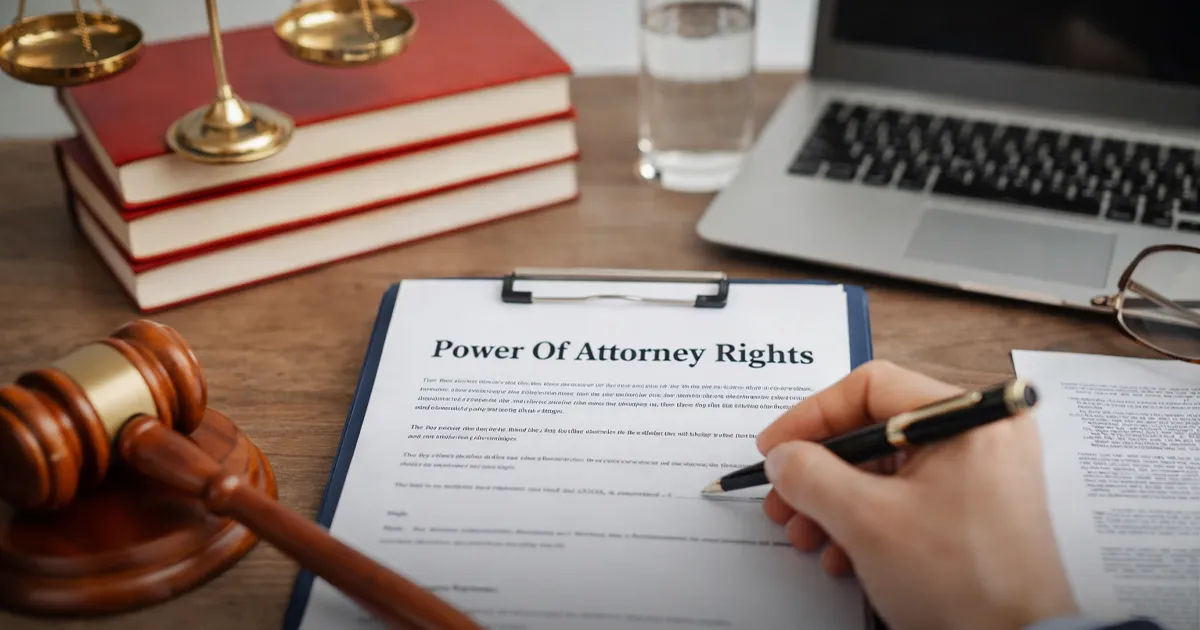When it comes to giving someone legal authority, a POA isn’t a one-size-fits-all document. The type you need depends on the purpose and scope of the authority you’re granting. The UAE recognizes several distinct types of PoA, each for a specific purpose.
General Power of Attorney (POA):
This type gives the agent broad authority to handle a wide range of legal, financial, and administrative matters. General POA includes managing bank accounts, property, and legal cases. Because it grants so much power, you need to have a very high level of trust in your agent.
Special Power of Attorney (POA)
This document limits the agent’s authority to a single, specific task or a few clearly defined tasks. For example, you can use it to allow someone to sell your car or handle a single court case for you. Special POAs‘ limited scope makes it a safer option, as it grants only the necessary authority.
Additional guide: How to Make a Special Power of Attorney
Property Power of Attorney (POA)
A Property POA is a special type of Special POA that lets an agent handle real estate matters for the principal. This includes buying, selling, leasing, or managing a property. In Dubai, Property POA for sales are strictly limited to 2 years, but POAs for property management, such as leasing, can last longer. In Abu Dhabi and other emirates, rules and timelines may vary, so it is important to check the specific regulations in each emirate.
Read more about: Can a Person with Power of Attorney Sell Property in the UAE?
Vehicle Power of Attorney (POA)
This POA is used to authorize vehicle-related tasks, like selling a car, transferring its ownership, or renewing its registration. Vehicle POA is especially useful for people who are traveling or moving abroad and need someone to handle their vehicle.
Read more: Power of Attorney for Selling a Car in UAE
Corporate/Business Power of Attorney (POA)
This is a key tool for business owners and those handling e-commerce business setup in the UAE. It lets a company’s owner or shareholder delegate authority to an employee or a third party to handle business matters. Business POA can include managing bank accounts, signing contracts, or dealing with government departments.
Family-Related POAs
These specialized POAs handle family and private matters that include:
- Marriage POA: Authorizes an agent to complete legal marriage procedures for the principal, following Sharia principles and with approval from the relevant Sharia Court for Marriage POA.
- Divorce POA: Grants an agent authority to manage divorce-related legal proceedings in accordance with Sharia law and court approval.
- Residency and Employment POA: Enables a trusted person to manage visa and employment-related documents on behalf of the principal.
- Personal Power of Attorney
A Personal Power of Attorney is issued for individual and private matters in the UAE. It allows a trusted person to act on your behalf when you cannot manage your personal affairs yourself.
This type of POA usually covers family and personal matters. Personal Power of Attorney include marriage or divorce procedures, child travel permissions, residency or visa tasks, and representation before government authorities. Many people also use it to manage personal property or banking matters.
Medical Power of Attorney (POA) (Healthcare POA)
This document grants a trusted agent the authority to make healthcare decisions on behalf of the principal in the event of incapacity. While less common than financial POAs, it ensures that the principal’s medical wishes are followed, which is especially important for expatriates with no family in the country.
Read more: What is a Health Care Power of Attorney?
Inheritance Power of Attorney (POA)
This POA allows an agent to manage inheritance matters, including transferring assets or managing property after the principal’s passing. For example, a person grants a trusted family member an Inheritance POA to handle the distribution of their assets, property, and any legal matters after their death.
Durable Power of Attorney (POA)
A Durable POA is unique because it remains valid even if you lose your mental capacity. In the UAE, to make a POA durable, the document must include specific legal wording to ensure the agent’s authority continues through incapacity.
Police Clearance Power of Attorney (POA)
This POA allows an agent to handle police clearance certificate applications on behalf of the principal. For example, a resident moving abroad gives a Police Clearance POA to a friend, authorizing them to apply for and collect the police clearance certificate on their behalf.
Banking Power of Attorney (POA)
Although this is a type of General POA, banks often require a specifically worded POA for operating accounts, accessing funds, or performing other banking functions. For example, a person grants a Banking POA to a trusted family member, authorizing them to manage their bank account and conduct financial transactions on their behalf.
Litigation/Legal Representation Power of Attorney (POA):
This POA allows a lawyer or legal representative to act on your behalf in the UAE courts. It’s commonly used for litigation and legal cases. For example, an individual facing a legal issue in the UAE grants a Litigation POA to their lawyer to represent them in court proceedings.
